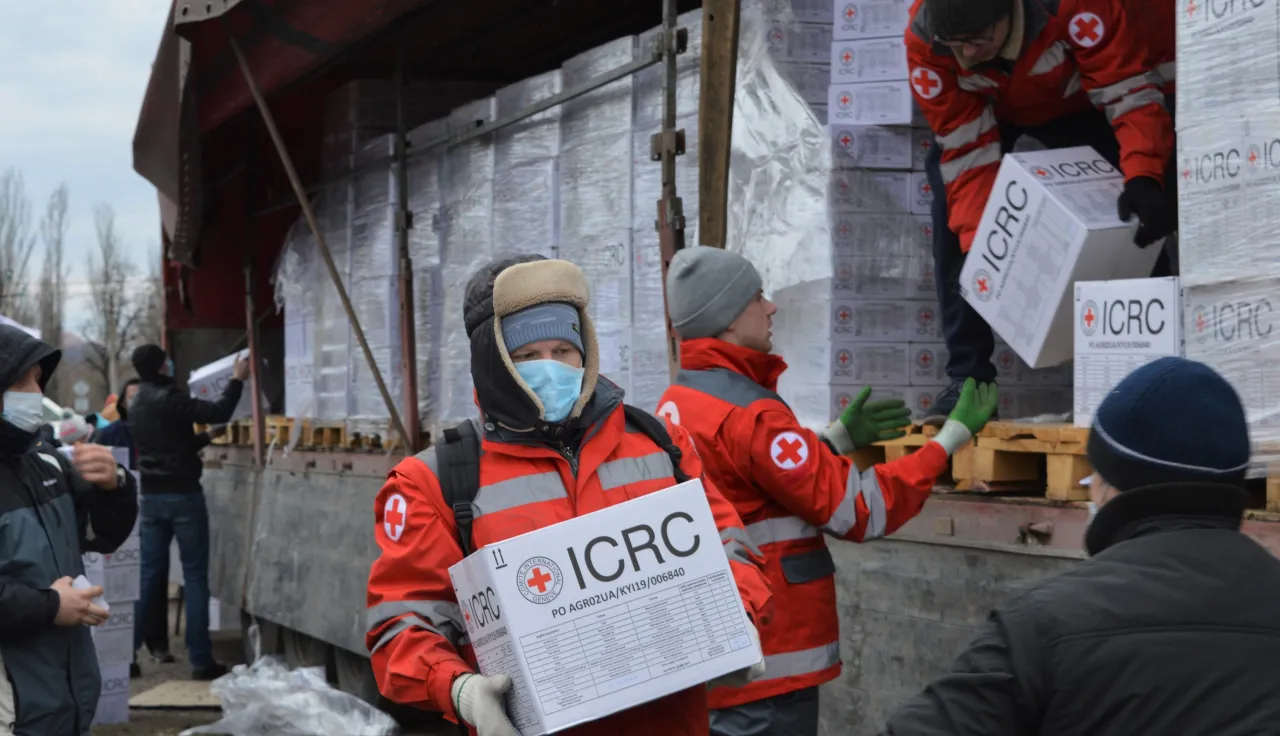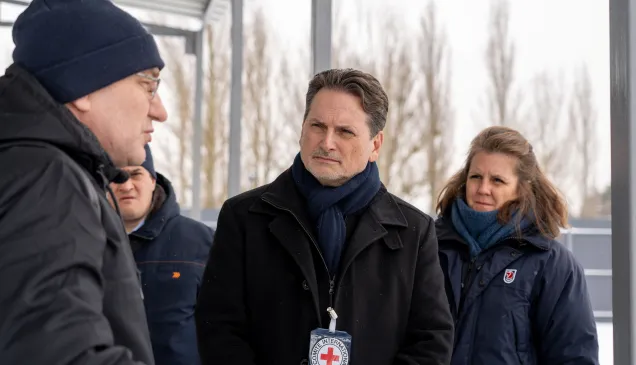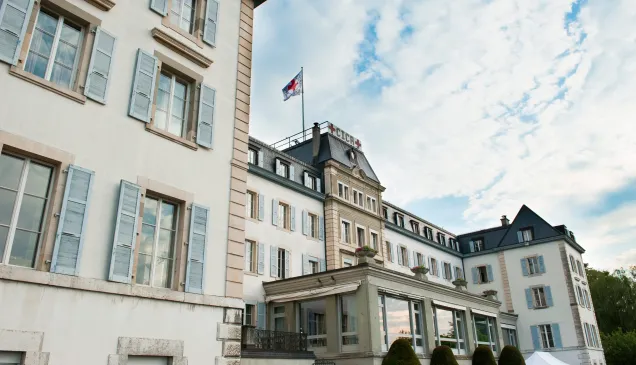Geneva / Kiev (ICRC) – Even as preventive measures are being implemented to contain the spread of COVID-19, an increase in hostilities is making life more difficult for residents along the line of contact in Ukraine – and particularly so for the elderly.
The region around Donbas is entering its seventh year of conflict. Unlike the decrease in hostilities and civilian casualties seen in previous years, the conflict dynamics this year have deteriorated, as more than 20 civilians have been killed or wounded. The International Committee of the Red Cross (ICRC) is working to mitigate the effects of the fighting and the impact of the measures necessary to limit COVID-19. Still, it remains challenging for isolated communities and individuals to cope.
"In conflict-affected areas such as Donbas in eastern Ukraine, the COVID-19 outbreak adds real challenges to the already difficult circumstances civilians face," said Florence Gillette, the ICRC's head of delegation in Ukraine. "For elderly residents and those with disabilities in particular, the loss of family and physical social contact means increased isolation, with a dire impact on mental health and the possible loss of food, medical and social resources."
The intensification of hostilities that the ICRC observed over the past few weeks is also affecting services and institutions. In the time of COVID-19, clean water is as crucial as ever for daily life and hygiene needs. Donbas' water system lies close to the line of contact, supplying water to both sides. All sides must make sure that the workers who maintain this system can safely report to work, that their work is facilitated and that all precautionary measures under international humanitarian law are taken to ensure the water system is not targeted directly nor affected as collateral damage. Only one hit to the water supply facilities could be a fatal blow to the several million people living in the area. It is also important that preventive measures against COVID-19 take into account the importance of maintaining essential services such as water.
The ICRC reminds all weapon bearers to respect at all times the principles of distinction and proportionality under international humanitarian law, as well as to take all the feasible precautionary measures to spare civilians and key infrastructure while engaging in armed hostilities. At a time when communities and authorities face the challenge of a global pandemic, the ICRC also calls for all sides to consider, in the planning and conduct of hostilities, the public health imperative to ensure timely access to health care, hygiene and basic services for all, including communities living in the conflict area of Donbas.
To assist those in need, the ICRC recently sent medical equipment and pharmaceuticals from Geneva to Kyiv with the support of the Ukrainian government to respond to COVID-19 cases in Donbas. This is in addition to 18 trucks with food, hygiene and medical material for treatment of chronic diseases distributed on both sides of the contact line last month, reaching over 24,000 people on both sides. ICRC teams are taking preventive measures to minimize contact with people receiving the assistance by, for example, delivering packages to peoples' doors, whenever possible, to help prevent and potential spread of the virus.
The ICRC also disseminates information about physical distancing, hand washing and hygiene, and is providing primary health care centres with personal protection equipment for healthcare workers, such as surgical masks, gloves, soap, alcohol hand wash. It also supports several COVID-19 reference hospitals with medical items and, where needed, the setting-up of a back-up system to ensure a 24-hour supply of water and electricity, which are essential for treating critical cases.
The ICRC has supported detention facilities with personal protective equipment for health workers in detention and distributed 7,400 hygiene parcels and cleaning products to 28 pre-trial detention centres in the government-controlled territory. In coordination with the Ukrainian Red Cross, it also delivered information prevention material and soap to 121 prisons and place of detention under the responsibility of the Ministry of Justice in all administrative divisions, known as oblasts.
Meanwhile, on 16 April 2020, the ICRC participated in the simultaneous release of 38 detainees between the Ukrainian government and representatives of the non-government-controlled areas of Donbas, in its role as a neutral intermediary. The ICRC ensured that detainees were willing to participate in this operation, and also provided basic hygiene kits and food.
For more information, contact:
Sanela Bajrambasic, ICRC Kyiv, Tel.: +380 952 628 049 or sbajrambasic@icrc.org
Jason Straziuso, ICRC Geneva, Tel.: +41 79 949 35 12




